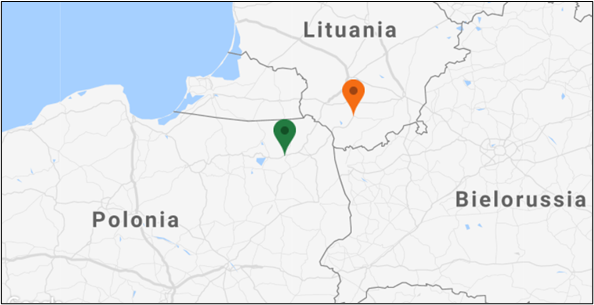What?
The areas either side of the border between Poland and Lithuania share more than a geographical border: they are also both characterized by increasing rates of unemployment, crime, poverty, homelessness, alcohol, and drug use, especially among younger generations.
The two cities of Alytus (LT) and Elk (PL) have taken a proactive, coordinated approach to addressing these issues through the “Time is now for change” project. The goal is to create and implement the Street Workers initiative, a cross-border social programme that, through concrete actions, provide at-risk children, their families and other street workers with the durable social network and support they need to improve the quality of their lives.
The initiative includes vocational trainings, survival camps for kids and youth, sport activities and involves NGOs, police, education organisations, probation office, social support centres and other institutions.
Where?
Cities of Alytus (LT) and Elk (PL).

How?
The project officially started on the 1st of January 2017 and ran until March 2018. It was co-funded by the EU through the Cooperation Programme Interreg V-A Lithuania-Poland (about €600 000 ERDF contribution). The investment falls under the priority “Promoting social inclusion, combating poverty and elimination of all forms of discrimination”. Led by Alytus City Community Center in partnership with Elk City Municipality the project has been presented to other cities and the Lithuanian partner has applied for additional funding which, if granted, will be used to ensure the initiative’s continuation.
Results
This project benefitted from the lessons learnt in Elk, which was one of the first cities in Poland to implement such a social programme. Based on this experience, they trained their Lithuanian counterparts by sharing best practices and experiences. For example, experts from Elk organised practical training on how to deal with troubled youth.
As a result, the cities benefited from cross-border cooperation and registered a decrease in crime and drug use as well as gaining new methods of engaging with street workers. Some of the beneficial results the project has produced include many young people in both cities enrolling in school, starting to volunteer in the community, and joining local community centers. These are all positive steps towards enhancing their quality of life. In total, over 140 persons participated in the joint training and over 400 in the programme as a whole.
Additional information on
- Tagy
- education employment health

